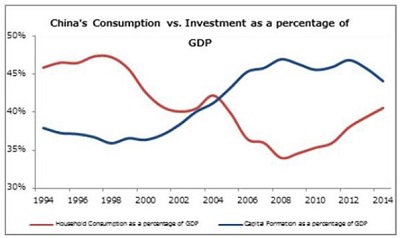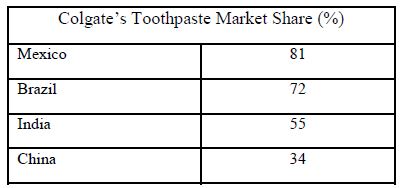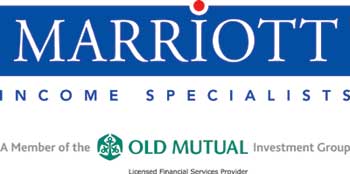Global Volatility - New Investment Strategies for a Changing Investment Landscape?
By Duggan Matthews, Investment Professional at Marriott Asset Management

The global investment landscape is in the midst of considerable change, and this has been reflected by unusually volatile markets. The two most important factors to consider are rising interest rates in the US, something we haven’t seen for a decade; and China’s economic transition from a production to a consumption driven economy.
These two significant changes require investors to seriously rethink the merits of some of the investments they may hold; investments that have served them well for the past decade, but are unlikely to do so for the next decade.
Marriott believes that the best and lowest risk investments are the well-recognised multinational companies, which sell everyday consumer goods into most countries throughout the world. Although listed on first world stock exchanges, these businesses transcend geographic boundaries, and will benefit from the anticipated consumption boom in the years ahead.
Looking back on a volatile 2015
2015 disappointed many investors who had continued to rely on investment strategies that had worked well in the past. Resource companies, despite the appeal of “attractive” valuations declined in value by almost 40%. The Rand depreciated by 34% against the US$. Returns from emerging markets were poor, often compounded by weakening currencies, and rising government bond yields.
What’s changed?
For the past 30 years China’s economy has grown by approximately 10% per annum – a feat never achieved before in modern history. This growth has been largely driven by massive spending on infrastructure.
Since 2000, China has increased the length of its public roads by over 2.5 million kilometres: a distance that could take you around the world along the equator over 60 times. China has also tripled the number of its large cities – it now has 15 megacities with populations exceeding 10 million each.
During this period China’s consumption of the world’s metals increased from approximately 10% to over 50%. And in the last five years (since 2010), China has consumed more concrete than the United States did throughout the 20th century.
This huge demand for ‘capex’ commodities (commodities used for upgrading physical assets such as property, industrial buildings or equipment) resulted in skyrocketing prices between 2000 and 2010. Accordingly, investors with direct exposure to emerging markets with natural resources as well as a high allocation to mining companies did very well.
Today, China is the second biggest economy in the world and is transitioning to a more consumer-driven economy as demand for new roads, factories and housing slows (there are currently 64 million unoccupied homes in China).
Not surprisingly, ‘capex’ commodity prices have fallen, which has resulted in large declines in the share prices of mining companies and the currencies of countries whose fortunes are tied to these markets. Considering the current oversupply of almost all raw materials superior returns from mining companies and emerging markets with natural resources should not be expected in the years ahead.
The other critical economic change, resulting from an improving US economic environment, is that US interest rates are rising for the first time in almost a decade. This will also have a profound impact on markets, as the ability to earn acceptable levels of interest on cash in the bank will likely put upward pressure on bond yields for years to come. The global bull market in government bonds has therefore likely come to an end.
The Opportunity?
The investment landscape over the next decade is likely to be shaped by global consumerism. China’s infrastructure spend may be slowing, but household consumption is increasing as more and more people enter the middle class. This transition to a consumer-driven economy is a normal part of a country’s economic development.

Led by China, it is estimated that by 2025 annual consumption in emerging markets will increase by $18 trillion and account for nearly half of the world’s total consumption. This has been described by McKinsey as “the biggest growth opportunity in the history of capitalism”.
Marriott is of the opinion therefore, that the lowest risk and possibly best returning investments for the next decade will be those businesses that produce the everyday products that consumers will demand. Multinational companies listed on first world exchanges (such as those in our portfolios) are likely to be major beneficiaries of this consumption boom.
We believe these companies are ideally positioned for the following reasons:
- From pet food to nappies, they offer goods and services that form an integral part of our daily lives. Due to the nature of their products, they tend to fare well in both recessionary and growth phases of the economic cycle and are seldom at the mercy of a new idea, trend or fashion.
- They have strong brands. Studies show that in Latin America and developing Asia between 60 – 80% of consumers only buy products and services from a trusted brand.
- They have established strong footholds in emerging markets as illustrated by Colgate’s toothpaste market share below:

In addition to maximising investors’ exposure to multinationals (wherever possible), investors with Marriott are well positioned for the changing investment landscape:
- We have no exposure to resource stocks, which will likely face headwinds for many years to come, or to fixed interest bonds which typically perform poorly in a rising interest rate environment.
- The South African equities we hold are ones that produce goods and services that consumers can’t go without, to ensure dividend growth in a struggling economy.
Duggan Matthews, Investment Professional at Marriott Asset Management
This release has been issued on behalf of Marriott, the Income Specialists

For more information, please contact:
Lisa-Marie Lloyd, Marriott Marketing:
031 765 0766 – direct
031 765 0700 – switchboard
Shirley Williams Communications
Shirley Williams: 031 564 7700 or 083 303 1663
Gillian Findlay: 082 330 1477
About Marriott, the Income Specialists
Marriott aims to reduce financial anxiety of retired investors by offering Solutions for Retirement, using an Income Focused Investment Style which produces reliable and consistent monthly income.






